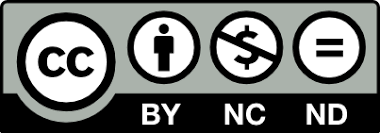TOWARD LEXICAL BUNDLES IN GEORGIAN LEARNER CORPUS OF ENGLISH WITH IMPLICATIONS FOR PEDAGOGIC LEXICOGRAPHY
DOI:
https://doi.org/10.52340/PUTK.2024.2346-8149.09.06Keywords:
lexical bundles, learner corpus, microstructureAbstract
A primary component of fluent language production is the control of complex lexemes, known as lexical bundles, chunks, or clusters. These frequently recurring sequences of words (e.g., as compared to) function as building blocks of discourse, helping to shape meanings in specific contexts and contributing to our sense of coherence in a text.
This paper is based on the corpus analysis with a combination of quantitative and qualitative criteria. To observe the idiosyncrasies and difficulties non-native writers face in producing accurate texts in English, the author compiled the Georgian Learner Corpus of English (GLEAN). Corpus data comprises argumentative essays, reports, narrative essays, and free composition essays within linguistics and literature, as well as blog posts, diaries and political/apolitical newspaper articles from Georgian learners of English. The aims of this research are as follows: a) to identify which lexical bundles (or lexical phrases) are most common in academic prose produced by Georgian learners of English; b) to classify the functions of the most common 3-word or 4-word lexical bundles used in the GLEAN corpus; and c) to highlight the value of adding the learner corpus data (such as illustrative sentences, usage notes, “help boxes”) to learner dictionaries. The research results showed that the most frequent bundles in the Georgian Learner English corpus serve the primary function of participant-oriented bundles, which express attitudes. The final product is a list of 42 lexical bundles that cover academic writing in the GLEAN corpus disciplines (literature, linguistics, press, blog posts, etc.) and the lexicographic implications for further research.
Full Text (PDF)
References
Altenberg, B. (1998). On the phraseology of spoken English: The evidence of recurrent wordcombinations. na.
Anthony, L. (2014). AntConc (Version 3.4. 3)[Computer Software]. Tokyo, Japan: Waseda University.
Bergenholtz, H., & Gouws, R. H. (2013). The Presentation of Word Formation in General Monolingual Dictionaries. Lexikos, 23, 59-76.
Biber, D., Johansson, S., Leech, G., Conrad, S. & Finegan, E. (2000). Longman grammar of spoken and written English.
Biber, D., Conrad, S. & Cortes, V. (2004). If you look at…: Lexical bundles in university teaching and textbooks. Applied linguistics, 25(3), 371-405.
Byrd, P. & Coxhead, A. (2010). On the other hand: Lexical bundles in academic writing and in the teaching of EAP. University of Sydney Papers in TESOL, 5(5), 31-64.
Dirk, S. (2004). Discourse markers across languages: A contrastive study of second-level discourse markers in native and non-native text with implications for general and pedagogic lexicography. Routledge.
Durrant, P. (2017). Lexical bundles and disciplinary variation in university students’ writing: Mapping the territories. Applied Linguistics, 38(2), 165-193.
Erman, B. & Warren, B. (2000). The idiom principle and the open choice principle. Text & Talk, 20(1), 29-62.
Gates, E. (1988). ‘The treatment of multi-word lexemes in some current dictionaries of English’, in Snell-Hornby (1986): 99–106.
Gledhill, C. J. (2000). Collocations in science writing (Vol. 22). Gunter Narr Verlag.
Gouws, R. H. (1991). Toward a lexicon-based lexicography. Dictionaries: Journal of the Dictionary Society of North America, 13(1), 75-90.
Granger, S. (2009). Prefabricated patterns in advanced efl writing: Collocations and formulae (oup, 1998).
Granger, S. & Paquot, M. (2009). Lexical verbs in academic discourse: A corpus-driven study of learner use. Academic writing: At the interface of corpus and discourse, 193-214.
Granger, S. (2018). Formulaic sequences 1 in learner corpora: Collocations and Lexical Bundles. Understanding formulaic language, 228-247.
Hasselgren, A. (1994). Lexical teddy bears and advanced learners: A study into the ways Norwegian students cope with English vocabulary. International journal of applied linguistics, 4(2), 237-258.
Hausmann, F. J. (1993): Was ist eigentlich Wortschatz? In: W. Börner & C. Vogel (Hrsg.): Wortschatz und Wortschatzerwerb. Bochum, 2-21.
Hoffmann, S., & Evert, S. (1996). BNCweb (CQP-edition). URL: http://bnc-web. lancs. ac. uk (Last accessed on March 28, 2024).
Hoffmann, S., Evert, S., Smith, N., Lee, D. & Berglund-Prytz, Y. (2008). Corpus linguistics with BNCweb-a practical guide.
Hyland, K. (2008). As can be seen: Lexical bundles and disciplinary variation. English for specific purposes, 27(1), 4-21.
Lewis, M. (1993) The Lexical Approach: The State of ELT and a Way Forward, Hove: Language Teaching Publications.
Makhatadze, M. (2023). Perfectly Perfect Adverbs: A Learner Corpus Study of the Amplifier Collocations by Georgian Learners of English.
Měchura, M. B. (2017, September). Introducing Lexonomy: an open-source dictionary writing and publishing system. In Electronic Lexicography in the 21st Century: Lexicography from Scratch. Proceedings of the eLex 2017 conference (pp. 19-21).
Milton, J.,& Cheng, V. S. (2010, June). A toolkit to assist L2 learners become independent writers. In Proceedings of the NAACL HLT 2010 Workshop on Computational Linguistics and Writing: Writing processes and authoring aids (pp. 33-41).
Nesselhauf, N. (2005). Collocations in a learner corpus. Collocations in a Learner Corpus, 1-344.
North, S. (2005). Different values, different skills? A comparison of essay writing by students from arts and science backgrounds. Studies in higher education, 30(5), 517-533.
O’Flynn, J. (2022). Lexical bundles in the academic writing of the Arts and Humanities: from corpus to CALL. Yearbook of Phraseology, 13(1), 81-108.
O’Flynn, J. (2019). Developing an Academic Collocation List for Arts and Humanities (Doctoral dissertation, Master’s Dissertation]. University of Warwick).
Simpson-Vlach, R. & Ellis, N. C. (2010). An academic formulas list: New methods in phraseology research. Applied linguistics, 31(4), 487-512.
Sinclair, J. 2010 [2007]. Defining the Definiendum. In de Schryver, G.-M. (ed.) A Way with Words: Recent Advances in Lexical Theory and Analysis. A Festchrift for Patrick Hanks. Kampala: Menha Publishers, 37-47.
Sinclair, J. (1991). Corpus, concordance, collocation. (No Title).
Zgusta, L. (2010). Manual of lexicography (Vol. 39). Walter de Gruyter.












